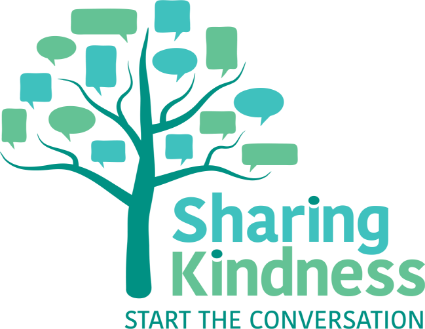The Value of Grief 101

By Chrystal Kellerman
When my husband died, I lost what I thought was a support network. I lost lifelong friends who could not understand why “I just couldn’t get over it.” Well-intentioned people would say things like, “Well at least he doesn’t have to suffer anymore,” or “He wouldn’t want you to be sad. Be happy.”
I could not eat or sleep, and my brain felt scrambled. I could no longer think well enough to perform my work duties. My physical health was failing. I had one co-worker who offered support, checked on me regularly and sent me funny things. That was a lifeline, but I was beginning to feel like a burden. Everyone wanted me to be happy. People would ask me, “How can I help?” and I did not know how to answer.
I sought out mental health counseling recommended by hospice; I was presented with the five stages of grief model (established by Dr. Elizabeth Kubler-Ross, originally in the context of terminally ill patients’ understanding their own deaths). I didn’t fit into the stages, and thought I was going crazy. I got so sick and could not function.
This past January, I attended Grief 101 at the Brewster Public Library. The information was eye-opening.
For the first time ever, I did not feel crazy or alone in my grief. I was so relieved. These people from Sharing Kindness get it. They understand what it is like to be grieving. They presented evidence based information about grief and how to talk to and support someone who is grieving.
Also for the first time, I heard that what I had experienced was a natural response to loss. It was not pathological. I learned about what it means to companion the bereaved. It was a relief to hear that I did not have to be “fixed.” Everyone I came across was trying to fix me. I learned that grief is messy, non-linear, disconnecting, painful, sneaky, unrelenting, confusing, and hard work. I was, as they described, “A tangled ball of emotions.”
The information presented in Grief 101 is invaluable.
As stated in the presentation, “Loss is something that happens to all of us. Grief is individual.” No two people experience grief exactly the same. This is helpful to know because it prevents us from projecting our experience onto another. Learning that grief does not shrink over time — that instead, we grow around it — made me feel so validated and supported. Learning about the secondary losses from grief was empowering. I had no idea before this presentation that not only was I experiencing the primary loss of my husband, I was also experiencing loss of income, loss of identity, loss of dreams for a future, loss of financial security, and loss of a support system.
The information also helped me understand how grief affects the body. I didn’t know that my lack of sleep, focus and concentration, poor eating and digestion, and heart pain were all a normal experience when grieving. I learned ideas for how to take care of myself, and how to companion someone who is grieving by listening attentively, avoiding platitudes, and being okay with not knowing what to say.
Grief 101 is needed in our community. Understanding what you are experiencing as a grieving person is helpful.
Grief 101 is suicide prevention. Knowing how to support someone during their darkest times can save lives.
I am forever grateful for the people at Sharing Kindness for sharing this information; it needs to be taught in the schools and in the community. Information is power, and collectively we can all learn how to support someone grieving. We may even save a life with this information.

